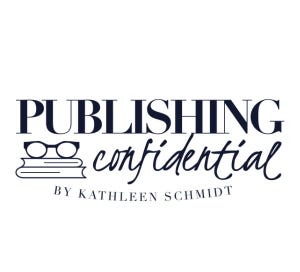Whose Voices Get to be Heard in Publishing?
Amidst a world in turmoil, we mustn't further fracture the literary community.
Writing this isn’t easy, so forgive me if my words aren’t perfect. I can’t begin to know what it must feel like to be Jewish or Palestinian right now, and I am not here to provide a history lesson, as I am still listening and learning myself. I want to talk about the fracturing of the literary community at this moment.
You may have read about the 92nd Street Y’s decision to cancel an event featuring Pulitzer Prize-winning novelist Viet Thanh Nguyen due to his statements about Israel. The event was moved to McNally Jackson, but the damage had already been done: 92NY (the rebrand of the 92nd Street Y) announced Monday that it was putting its prestigious literary reading series on pause. You can read more about the fallout here.
The University of Vermont canceled an event where award-winning poet, writer, and journalist Mohammed El-Kurd was to speak about Palestine: Women and Children and the Politics of Appeal. It is now taking place virtually. At the same time, numerous TikTok accounts began circulating lists of authors who supported Israel and called for a boycott of them. I’m not linking to the TikTok accounts because I don’t want to endanger anyone further. Jewish authors are on the receiving end of antisemitism that I could never imagine happening as a non-Jew. The anger in the publishing community is palpable right now, and one must wonder what the industry will do to create a path for opposing views in the future. This is not a new issue in publishing, but it has come to a dangerous head and must be addressed. Silence is not the answer.
I’ve thought long and hard about what censorship means in the publishing industry. I’ve worked on books by authors whose beliefs did not align with mine. I’ve never signed a petition to get a book canceled, nor have I recused myself from working on a title because of its subject matter. I have long believed that it is the reader’s job to decide what books to buy and a publisher’s job to give them choices. That can’t happen when individuals and institutions create further division in an already broken industry.
One of the most essential tenets of book publishing is exchanging ideas. Often, ideologies clash, and social media becomes an echo chamber of people screaming about what should or should not be published. This has always struck a chord with me because I’ve often been the person working on the book that people choose to protest. Now, as I see outcries on social media for author events not to be canceled, I wonder how the same people who demonized authors they disagreed with in the past can do the mental gymnastics to decide that one author has a right to speak publicly, but another doesn’t. To put it simply, you can’t have it both ways. You can’t say that author X wrote a book you disagree with and therefore shouldn’t have a platform, but author Y, whom you agree with, should be able to say whatever they’d like. For all the talk of gatekeepers in the publishing industry, the people who want to remove them become them.
Make no mistake: it is dangerous to post a list of authors on TikTok because they support Israel, just as it would be dangerous to publish a list of authors who support Palestine. It is not in the best interest of the literary community to put a prestigious reading series on hold because an organization can’t find a way forward during turbulent and complicated times. What’s missing in all of this is the ability of the publishing community to come together and productively discuss how to promote their Jewish and Palestinian authors. I can’t pretend to have the answers, but ignoring the issues will not make them disappear. Publishers must urgently meet this moment or risk alienating authors, agents, readers, and employees.
As a society, if we can’t understand that two things can be true at once, that the terrorist attack in Israel and hostages being held by Hamas is unacceptable AND the loss of innocent lives in Gaza is tragic, then I fear we will continue to stifle important voices that deserve to be heard. While I am not qualified to speak in depth about the history of the Middle East, I can talk about how unfair and risky it is for authors to become targets of hate. There is no perfect solution, but the unwillingness of many in the publishing community to show empathy is disappointing. Where are the people who will call for TikTok accounts to stop posting the names of authors who support Israel? Where are the publishers who will stand by their authors if their events are canceled? If we, as a community, can’t depend on each other during times of crisis, why are we in this business?
Thank you for reading this edition of Publishing Confidential. Comments will be turned off for this post due to the topic's sensitive nature.
Later this week, the paid edition of this newsletter will discuss the reality of author platforms in 2024.



